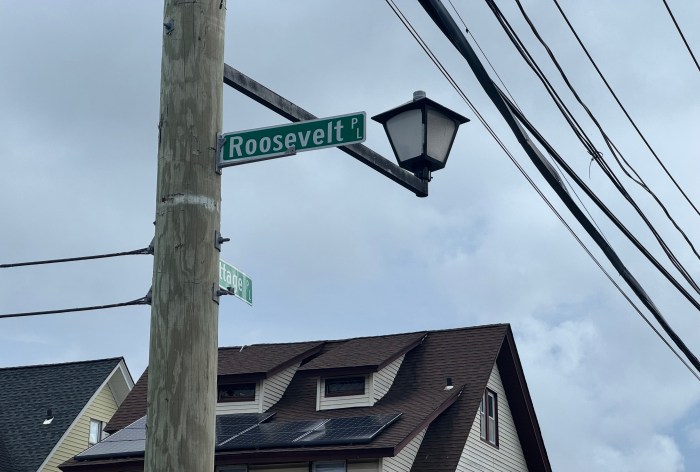The Board of Commissioners of the Port Washington Police District voted unanimously to adopt the proposed district budget which includes a nearly 10 percent tax increase for 2014.
The vote for the 9.995 percent hike came at the conclusion of a public hearing Wednesday September 11. The hearing followed four public budget workshops during the last two months and the tax increase take effect Jan. 1. At the meeting where the hike was adopted, only four residents attended.
The commissioners first passed a resolution authorizing the district to exceed the 2011 New York State Law which imposes a limit on the annual growth of property taxes levied by special districts to two percent or the rate of inflation, whichever is less. This is the second year in a row that the tax cap has been exceeded by the district. The increase for 2013 was 3.3349 percent.
The police district tax is the largest portion of Port Washington residents’ total tax burden after school taxes. Expenses have increased year over year by 5.2604 percent. A spokesperson for the district said there are special circumstances which require the tax hike. The district is putting extra money aside to fund lump sum payouts to retiring police officers. How many?
It is anticipated that because the district has chosen to participate in a different option of the NYS Retirement Plan which enables officers to retire at age 55 with 32 years of service at 68 percent of their pay, the number of officers retiring over the next few years will increase. This is a more favorable option for retirement that also enables the district to save money over the long haul because new hires are entering at lower pay and they are required to make larger contributions to the NYS Retirement Fund, the plan says. The percentage the district pays into the fund for these new hires will decrease over time.
Currently the majority of officers are tier two participants in the State Retirement System, meaning among other things that they make no contribution to the retirement fund. New employees will be tier six. Tier six officers contribute four percent of the annual contribution to the retirement fund until they reach an annual salary of $100,000 at which point they contribute six percent. It is estimated that the combination of new officers at lower pay and the decrease in retirement contributions by the district will save $1.5 million over the next five years. In 2013 four officers including the chief retired.
Barry Loeb a Port Washington resident who has been attending police district meetings for years and is well versed in the politics and finances of the district, said he say the 2014 budget as “a knee jerk reaction to several one time budgetary events.” The budget “also appears to me to be an unsophisticated understanding of the entire budgetary process,” Loeb said. “There are raises on average of 12 percent per year for civilian employees that are unconscionable in this economy.”
Loeb said that the increase in retirements will grow only incrementally and that the additional expenses should have been budgeted for gradually during the last few years, to avoid such a significant jump in taxes all at once. “The expenses of the district have doubled during the last 10 years, this growth rate is unsustainable,” he said. “We need long range planning.”
Responding to Loeb’s comments, Police Commissioner Dave Franklin told the Port Washington News that the salary increases including the three percent for officers were mandated by union or union-like contracts.
There are annual step ups in grade which translate to step ups in salary. “The commissioners agree that 12 percent (in raises) is excessive as are the steps which provide for what works out to be a double raise. The terms of employment we have designed for the civilians similar to what we have done with the union officers will lower future salaries, add steps with lower disparity between them and lower the top tier as well. Future hires will also pay more to their health benefits. We as a board are also Port residents and taxpayers as well, looking to cut costs without cutting service.”

































